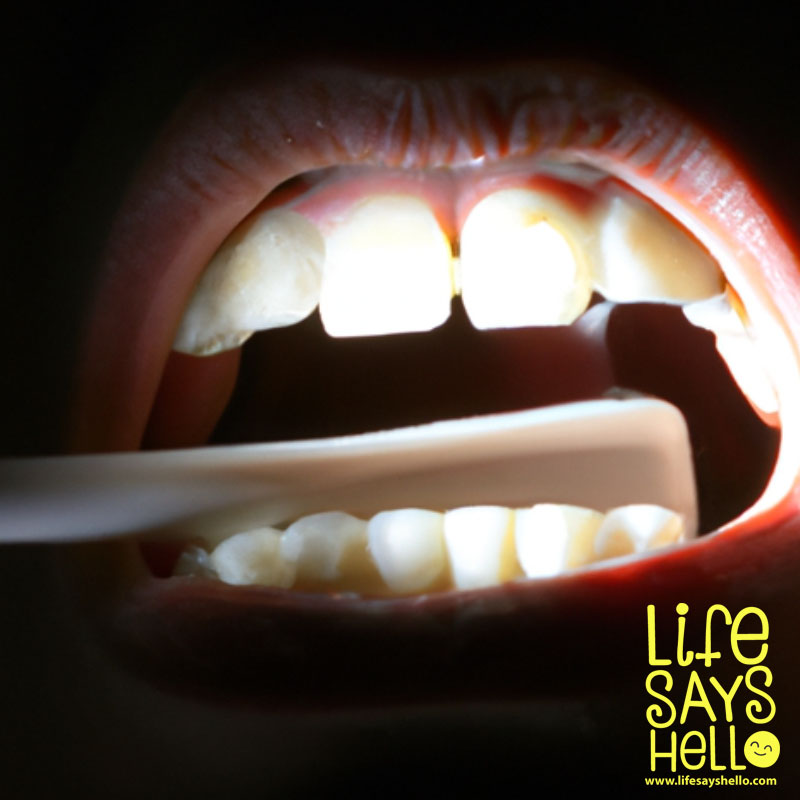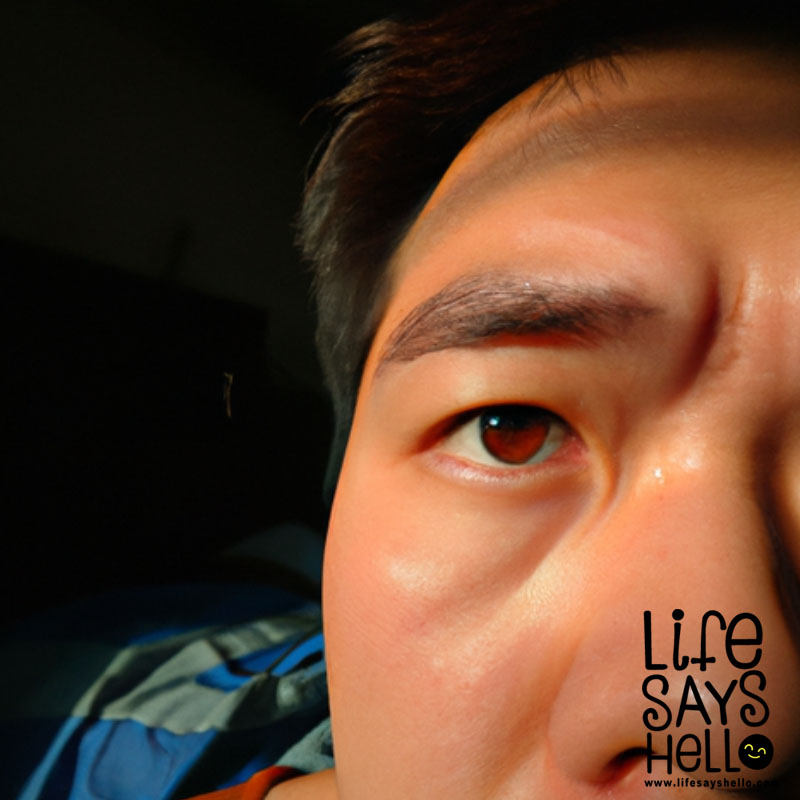Why Are My Eyes So Itchy? 9 Common Causes and Natural Remedies

Itchy, watery eyes are no fun to deal with. If your eyes feel irritated, dry, or downright uncomfortable, you're probably wondering what's causing the problem and how to get relief fast. In this post, I'll go over the most common reasons for itchy eyes and simple home remedies you can try to soothe the irritation. Keep reading to learn why your eyes are itching and how to stop the madness!
Allergies
Allergies are one of the most common causes of itchy eyes. Seasonal allergies to pollen, grass, and mold can trigger itchiness when your eyes are exposed. Pet dander, dust mites in your home, and other indoor allergens may also irritate your eyes and cause redness, swelling, and excessive watering. Allergic reactions cause your eyes to release histamine, which leads to inflammation. If you suspect allergies are the culprit, see an allergist about allergy testing and possible treatments like antihistamine eye drops or oral medications. Staying indoors when pollen counts are high and using HEPA air filters can also help reduce allergy irritation.
Dry Eyes
Dry eye syndrome is another major cause of itchy eyes. Your eyes need a constant flow of tears to stay lubricated. When tear production is inadequate, your eyes will feel dry and irritated. Dry eyes are often worse in windy conditions, heated/air-conditioned rooms, and other environments where moisture evaporates quickly. Staring at digital screens for too long can also contribute to dryness. Using a humidifier, taking frequent breaks when looking at screens, and applying preservative-free eye drops can help replenish moisture. If your dry eyes are chronic, your doctor may recommend prescription eye drops or treatments to stimulate tear production.
Eye Infections
Itchy eyes are often one of the first symptoms of a bacterial, viral, or fungal eye infection. Pink eye (conjunctivitis) is a prime example—this highly contagious infection makes eyes look pink or red due to inflammation and causes itchiness, discharge, and crusting around the eyes. Other common eye infections like blepharitis (eyelid inflammation) and keratoconjunctivitis (cornea inflammation) also provoke itchiness. See an ophthalmologist right away if you suspect an infection, since prompt treatment with antibiotic or antiviral eye drops is important.
Environmental Irritants
Airborne irritants like smoke, dust, and fumes can aggravate your eyes and cause red, itchy discomfort. Indoor pollutants from candles, cleaning products, or cigarette smoke may be to blame. Outdoor irritants like car exhaust and haze can also bother your eyes. Wearing wraparound sunglasses when outside protects your eyes from particles in the air. At home, using air purifiers and avoiding chemical irritants can help prevent itchy eyes. Rinsing your eyes with cool water after exposure provides quick relief.
Chronic Eye Conditions
For some people, constant eye itching is due to an underlying chronic eye condition like blepharitis or keratoconjunctivitis. Blepharitis causes inflammation along the eyelid margins, while keratoconjunctivitis creates irritation on the cornea. Both problems can make your eyes feel gritty and itchy every day. Proper eyelid hygiene using warm compresses and tea tree oil scrubs can help manage blepharitis. Medicated eye drops may be prescribed for keratoconjunctivitis. Identifying and treating the underlying condition is key to stopping the itch.
Eye Strain
If your eyes feel tired and irritated after prolonged computer use, reading, or other close work, you may just be experiencing eye strain. Focusing your eyes for an extended time leads to fatigue. You unconsciously start blinking less, which dries your eyes out. Try following the 20-20-20 rule—take a 20-second break every 20 minutes to view something 20 feet away. This lets your eyes relax. Adjust your screen brightness, text size, glare, and workstation setup to make long tasks easier on your eyes. If symptoms persist, check in with your eye doctor.
Medication Side Effects
Itchy eyes are a common side effect of certain oral and topical medications. Antihistamines, antidepressants, birth control pills, and eye drops containing preservatives often provoke ocular itching and irritation. If your itchy eyes started around the same time as a new medication, talk to your doctor about switching to another drug or formula. An antihistamine without the side effect of eye dryness may be an option. Preservative-free eye drops can also help if your itchiness stems from your glaucoma or dry eye drops.
Hormonal Changes
Hormonal fluctuations related to menstruation, pregnancy, and menopause can increase oil production in your eyelids, leading to itchiness. Blepharitis and dry eyes may also worsen around your period or during perimenopause when estrogen levels are in flux. Keeping eyelids clean and using cool compresses can provide relief when hormones cause eye irritation. If problems persist, ask your doctor about safe treatment options.
Aging
Advancing age can contribute to itchy eyes in several ways. Our tear production tends to decrease as we get older. Eyelids may droop or turn inward, disrupting the tear film distribution. Lax eyelids are also more prone to blepharitis. Age-related dry eye syndrome is a very common cause of chronic eye itching in seniors. Using moisturizing eye drops and keeping eyelids clean is helpful. Some severe cases may require surgery to tighten sagging eyelids so they close properly again.
Contact Lens Overwear
If you wear contacts, overusing disposable lenses or sleeping in lenses overnight can irritate your eyes and cause redness, pain, and itching. Contacts should be removed, cleaned, and disinfected daily to prevent infections and irritation. Give your eyes a break by wearing glasses periodically if you notice your contact lenses causing discomfort. Switch to new contacts regularly and replace solutions daily. See your optometrist if problems persist—you may need a different lens material or prescription.
Natural Home Remedies for Itchy Eyes
Now that you know the main culprits behind itchy, irritated eyes, let's go over some simple home remedies you can try for relief:
Cold Compresses
Placing a cold, damp washcloth over your closed eyes is an easy way to soothe itchy eyes. The cool temperature helps constrict blood vessels, reducing swelling. Cold also slows down the chemical reactions that cause inflammation. Try using chilled cucumber slices, gel eye masks from the fridge, or even a bag of frozen peas wrapped in a towel. Apply the compress for 10-15 minutes as needed to stop the itch.
Lubricating Eye Drops
Over-the-counter eye drops add moisture to dry, irritated eyes for quick relief. Look for drops specifically formulated for itchy eyes, like Ketotifen antihistamine drops. Preservative-free drops are ideal, since preservatives can cause stinging. Follow the package directions and limit use to 4-6 times daily at most. If your eyes stay dry and itchy, check with your eye doctor about prescription drops.
Cucumber Slices
Cucumbers have natural anti-inflammatory, cooling properties that make them the perfect home remedy for itchy eyes. Simply chill a cucumber in the fridge, then slice off rounds about 1/4-inch thick. Lie down and place a slice over each closed eye for 10-15 minutes as needed to reduce swelling and irritation. No more red, puffy peepers!
Cold Milk
Oddly enough, putting cold milk on your eyes helps take down inflammation. Soak two cotton pads or soft cloths in milk straight from the fridge. Apply the milk-soaked pads to your closed eyes for 10-15 minutes. The proteins and fat in milk help moisturize, while the cold temperature eases puffiness. This is an easy, soothing remedy you probably have at home.
Aloe Vera
The gel from aloe vera plants has powerful anti-inflammatory effects, making it great for itchy eyes. Keep an aloe plant on hand or use pure aloe gel. Apply a tiny dab around the outside of your eyes, being careful not to get any gel in your eyes. The cooling, calming aloe helps reduce redness, swelling, and irritation.
Tea Tree Oil Eyelid Scrubs
If itchy eyes are caused by blepharitis (eyelid inflammation), tea tree oil can help clear up the problem. Mix a few drops of tea tree oil with an equal amount of coconut or olive oil. Use a clean cotton swab to gently scrub the diluted oil along your eyelid margins. Tea tree oil has antibacterial properties to fight infection and reduce irritation.
Omega-3 Foods
Loading up on foods rich in omega-3 fatty acids can help dry, irritated eyes. Omega-3s help produce oil in your meibomian glands along the eyelid margins. This oil prevents tear evaporation. Great dietary sources include fatty fish like salmon, tuna, sardines, and mackerel. Walnuts, chia seeds, flaxseeds, and Brussels sprouts also contain omega-3s. Taking fish oil supplements is another option if you don't eat much seafood.
Vitamin C Foods
Foods high in vitamin C provide antioxidants that can help reduce inflammation and boost immunity—two benefits for itchy eyes. Citrus fruits, red peppers, broccoli, strawberries, and tomatoes are all great choices. Aim for at least 75 mg daily, and up to 2,000 mg during allergy season or flare-ups. Vitamin C also helps your body better absorb plant-based iron.
Vitamin A Foods
Vitamin A is crucial for good vision and eye health. A deficiency can cause extremely dry, itchy eyes. Beef liver, sweet potatoes, carrots, spinach, and cantaloupe are high in vitamin A. Eggs, milk, and cheddar cheese also provide sizable amounts. Adults need around 700-900 mcg daily. Don't overdo supplements, since high doses of vitamin A can be toxic.
Onion
Onions contain quercetin, a natural antihistamine and anti-inflammatory that prevents your body from releasing histamines that cause allergy symptoms like itchy eyes. Add plenty of onions to salads, soups, and other dishes. You can also brew onion tea by steeping chopped onions in hot water.
Honey
Dabbing a little bit of pure, raw honey around your eyes can help relieve itching and irritation. Honey has antimicrobial and anti-inflammatory properties. Make sure to use a clean applicator like a cotton swab so you don't contaminate the honey. Never put honey directly into your eyes.
In summary, itchy eyes have many potential causes, from allergies to infections and environmental irritants. Trying some natural home remedies can provide symptom relief in mild cases. But if your eyes stay severely itchy and irritated, it's important to see an eye doctor for an exam and diagnosis. Chronic itchy eyes may require prescription medication or treatment for an underlying condition. With the right care, you can get back to comfortable, white-eyed days ahead!




Comments